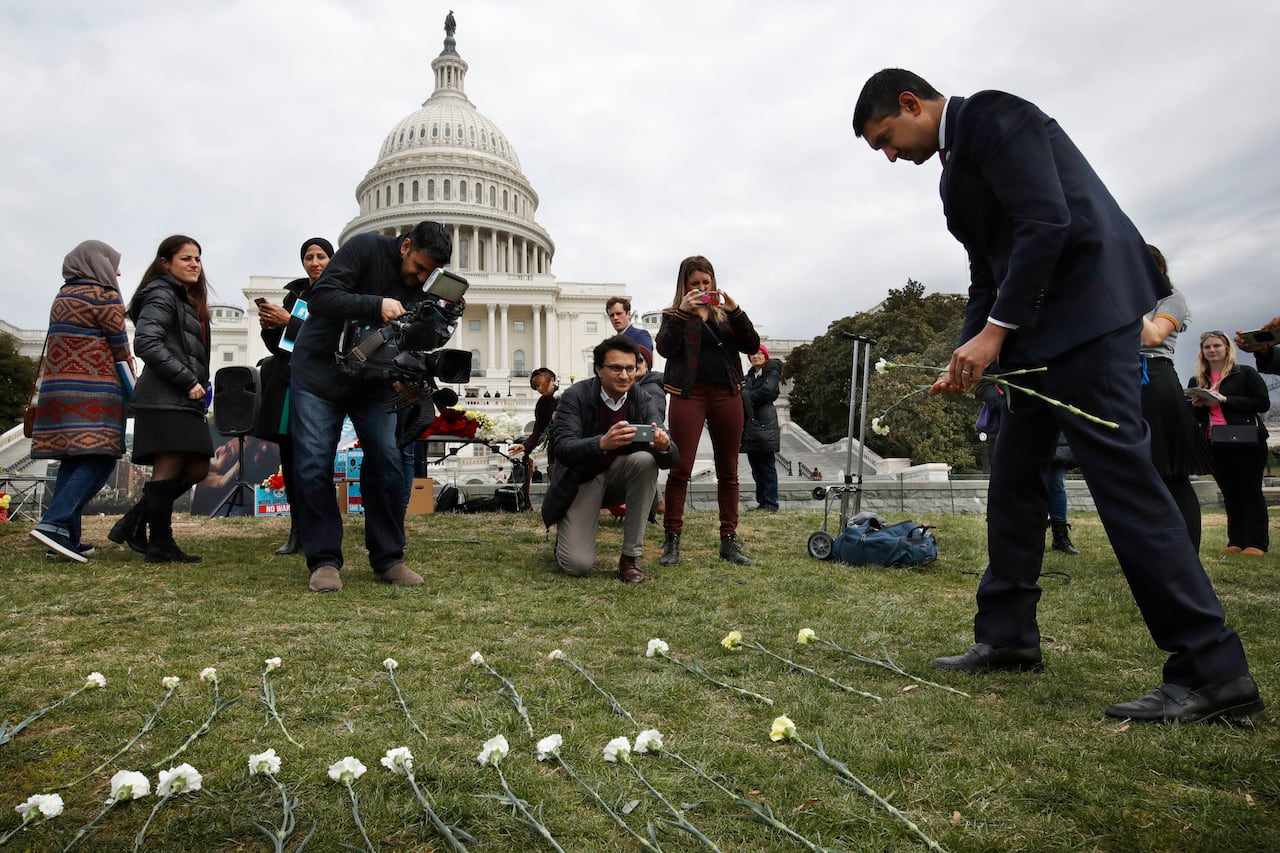COLOGNE, Germany — If the Syrian government were to unleash chemical weapons against civilians as it takes the last rebel stronghold of Idlib, how should Germany respond?
That question has roiled policymakers in Berlin all week following a media report in the Bild newspaper that said Washington had quietly inquired about the level of German help in such an event.
The inquiry comes after Berlin abstained from participating in strikes against the Syrian government’s chemical weapons arsenal in April, prompted by a government attack with chlorine gas on the rebel-held city of Douma.
German government leaders said afterward they were not asked to participate, though Western officials have privately argued Berlin would have had plenty of time to offer a contribution if so desired.
This time around, the debate has exploded into the public sphere. And it lays bare a deep rift within the German government. There is some itching to put punch behind the promise of Germany showing the kind of muscle as a geopolitical player that flows from its status as one of the world’s wealthiest countries.
In that line of thought, what nobler cause could there be than partaking in a coalition to forcefully uphold the international ban on chemical weapons by way of force?
That was the narrative chosen Wednesday by prominent leaders of the Christian Democratic Union, including German Chancellor Angela Merkel. If Syrian strongman Bashar Assad gasses women and children in his potentially final act to suppress the yearslong rebellion against his government, Berlin could not simply look away, she argued during a contentious parliamentary session.
RELATED

Her fellow CDU defense minister, Ursula von der Leyen, sees the potential to set a precedent through the ongoing debate. Litigating the thorny questions now would enable her ministry to quickly assess the legality of future strikes while still involving the Bundestag — or German military — for a final call, she said.
“We can't just shrug this off,” von der Leyen said. “This is how I understand the much-cited willingness by Germany to take responsibility.”
But Social Democrats, the government's coalition party, want nothing of it.
“International law, for good reason, does not acknowledge the right to military retaliation, and especially not by a state or any kind of coalition,” party head Andrea Nahles said earlier this week.
The situation would be different, she argued, if the United Nations empowered the international community to take action. Absent such a move, “we Social Democrats cannot approve a violent intervention in Syria,” she added.
RELATED

The last part of that statement — intervening in the conflict — is what has muddled the debate here, argues Christian Mölling of the German Council on Foreign Relations. And it has triggered old reflexes of keeping the Bundeswehr away from anything with even the faintest whiff of intervention, occupation or regime change.
In Mölling's view, the only question up for debate should be about Germany's stance in enforcing the international ban on chemical weapons, leaving out the battlefield tactics of what happens to Idlib.
“The coalition government is not looking good right now,” he said.
Tobias Lindner, a defense expert with the opposition Green Party, chided the government for beating around the bush about what exactly is on the table regarding the reported U.S. request. Lindner joked he saw Gerd Hoofe, a deputy defense secretary and confidant to von der Leyen, perform “legal pirouettes” at a Wednesday morning briefing to the Bundestag’s Defence Committee.
One participant of that meeting confirmed that the defense official spoke at length but left little room for questions during the allotted session. “Participants quickly were led to believe this isn’t going anywhere,” the source said.
RELATED

Opponents of Syrian strikes fear the Merkel government could find a way around parliament in punishing Assad for any chemical weapons use — or even act first and ask forgiveness later.
For now, Berlin is focused on preventing Idlib from turning into a humanitarian disaster, said German Foreign Affairs Minister Heiko Maas, of the SDP. He vowed that the topic would come up when Russian Foreign Minister Sergey Lavrov is expected in Berlin on Sept. 14. Russia is a key backer of Assad.
“My interest is to avoid having to even consider the question,” Maas said, referring to the legalities of a hypothetical retaliatory military strike.
The intense debate here comes as the Trump administration has pushed Germany to spend more on defense and be more willing to throw its weight around militarily.
Retired Lt. Gen. Ben Hodges, a former commander of U.S. Army forces in Europe, said he is sympathetic to the German government struggling with a response to the Syria dilemma.
“This is where we all get in trouble employing military action without thinking through what it is we want to achieve,” Hodges told Defense News. “I can understand why the Bundestag would be hesitant without first seeing a strategy.”
Sebastian Sprenger is associate editor for Europe at Defense News, reporting on the state of the defense market in the region, and on U.S.-Europe cooperation and multi-national investments in defense and global security. Previously he served as managing editor for Defense News. He is based in Cologne, Germany.








